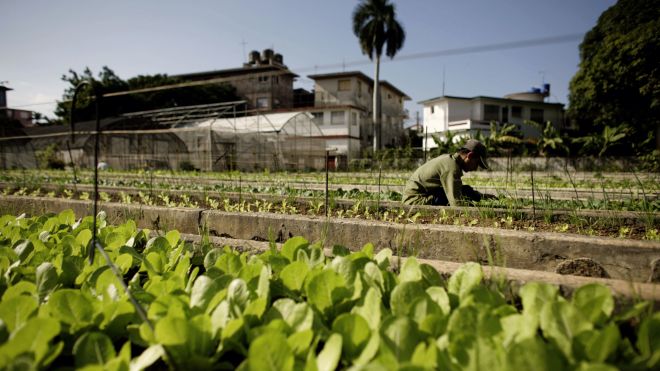
Two senators introduce bill seeking to lift U.S.-Cuba trade embargo
Three months after a group of Kansas agricultural officials visited Cuba to check out trade opportunities, U.S. Sen. Jerry Moran, a Republican from the Sunflower state, has introduced legislation that would restore trade with Cuba.
The bill, which Moran introduced with U.S. Senator Angus King, an Independent from Maine, seeks to pave the way for exporting goods and services to Cuba – which essentially is barred by the U.S.-Cuba embargo – by not calling for the use of federal funds to underwrite trade.
“What this bill does is take away one of the unnecessary criticisms of dealing with Cuba, which is you’re just going to allow U.S. taxpayers to fund the sale of agriculture products, commodities to Cuba,” Moran said, according to McClatchy newspapers.
“What we’re saying is if the market is there, if Cuba can acquire the necessary financing, that’s a great development for American business and for American agriculture,” he said, “but the criticism that we’re subsidizing those sales disappears in our legislation.”
The legislation, known as The Cuba Trade Act of 2015, permits private businesses to export goods and services to Cuba.
In March, several Kansas officials traveled to Cuba on a trade mission.
When they returned, the officials said Kansas stood to gain from being able to export agricultural goods to Cuba, which imports 30 million bushels of wheat annually, they said.
Doug Keesling, a Rice County farmer and a former chairman of the Kansas Wheat Commission, said at a Senate Agriculture Committee hearing in April: “From what I could see, there is a lot of potential in Cuba: potential in its own agriculture sector and potential as a market for U.S. agricultural exports.”
Of the 30 million bushels of wheat Cuba imports, Keesling said: “That would be over 10 percent of all the wheat grown in Kansas, going to this one island just a couple days’ sail from U.S. ports.”
Kansas Agriculture Secretary Jackie McClaskey said in a news release: “It makes sense that we should be looking to add new trading partners.”
No one expects the legislation to just cruise through.
Lifting the embargo faces stiff resistance in Congress.
Many who oppose removing it say that Cuba must take meaningful steps toward democratic reforms, including respecting human rights and allowing political opposition.
Many also object to the decision by President Barack Obama to restore diplomatic relations and ease travel and trade restrictions. They say Cuba has conceded nothing in return and that the deal to restore relations has disproportionately benefited the regime of Raul Castro. The Obama Administration cannot end the trade embargo without congressional approval.
“This issue is particularly fraught with lots of politics and personal experience,” Moran said, according to McClatchy newspapers.
“Cuban-Americans who immigrated from Cuba to the United States have strong feelings on both sides of this issue, so I don’t think anything is easy about it,” he said. “But this is – in my time in dealing with this topic – probably the best opportunity we’ve had.”
However, those who support diplomatic relations and lifting the embargo say that more than 50 years of taking a hard line against the Caribbean island have done nothing to spur democratic changes, and that a new approach by the United States is necessary.
“Cuba is only 90 miles from our border, making it a natural market for our nation’s farmers and ranchers,” Moran said in a statement on his website. “By lifting the embargo and opening up the market for U.S. agricultural commodities, we will not only boost the U.S. economy but also help bring about reforms in the repressive Cuban government. I am hopeful that increasing the standard of living among Cuban citizens will enable them to make greater demands on their own government to increase individual and political rights.”
“By lifting the embargo and opening up the market for U.S. agricultural commodities, we will not only boost the U.S. economy but also help bring about reforms in the repressive Cuban government. I am hopeful that increasing the standard of living among Cuban citizens will enable them to make greater demands on their own government to increase individual and political rights.”
(From: Fox News Latino)


